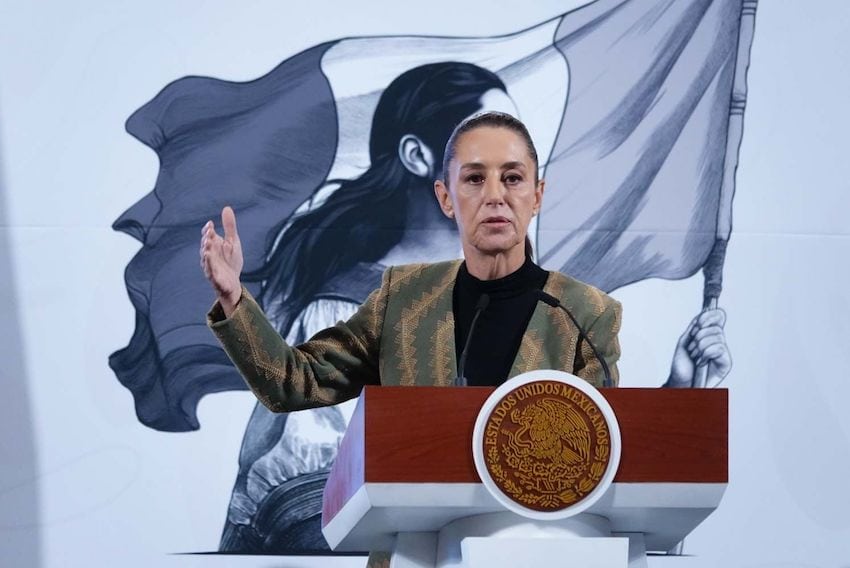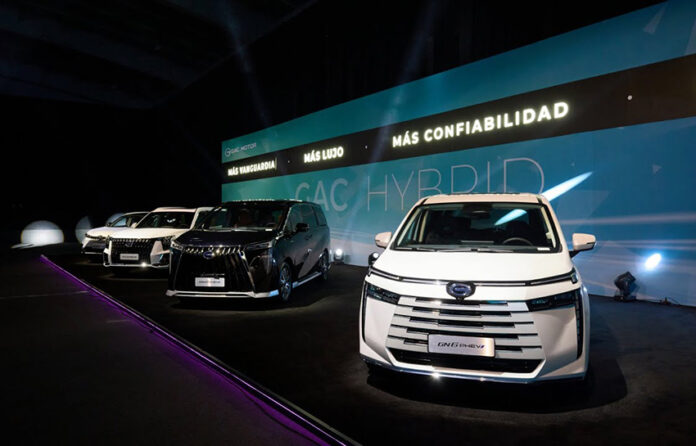Claudia Shienbaum’s job as president of Mexico is getting increasingly difficult.
I have previously written and spoken about the many challenges she faces, from a slowing economy in Mexico to an aggressive President Trump in the U.S. She has many significant and complex decisions to make on trade, infrastructure, health care, judicial reform, the cartels, education and other policy issues with the U.S.
One of the more complicated choices she faces is regarding Chinese cars and Chinese investment in Mexico. Let me explain.
Since the signing of NAFTA over 30 years ago, Mexico has steadily increased its automotive vehicle production to become one of the world’s largest auto producers. In 2024, Mexico produced nearly 4 million vehicles — a record for the country and a 5.5% increase from 2023. Nearly 88% of Mexico’s production is exported, with over 80% going to the United States.
The country has developed an equally impressive auto parts production industry of over US $120 billion with 87% being exported. The result of this growth has placed Mexico in fifth place globally for vehicle production and fourth place globally for auto parts production.
So far so good, right? But things quickly become more complicated. To help me understand what is going on not only in the Mexican auto market but also globally, I sat down with Michael Dunne of Dunne Insights. Dunne has spent over 30 years working in the global auto market and is one of the best people globally to talk to when looking to understand trends and future projections for the industry.

Here are some key takeaways from our conversation.
1. Mexico’s domestic car industry sales last year were nearly 1.5 million vehicles, an increase of nearly 10%. Surprisingly, only 34% of the cars sold in the country last year were produced domestically while 66% were imported. Think about that for a moment. Mexico exports 88% of its own car production and yet imports 66% of its domestic car sales! About one third of the imports are from China, meaning Chinese-made vehicles made up about 20% of the domestic car market last year — up from almost nothing just a few years ago.
2. Despite Mexico exporting 88% of its own vehicle production, the country is now the No. 1 importer of Chinese-made cars, just recently overtaking Russia. It’s a significant milestone: Russia is geographically close to China, no longer has much of its own auto industry, and is geopolitically close to China. Mexico, on the other hand, is far from China, has its own massive auto industry, is geopolitically close to the U.S. … and yet it is now importing more Chinese cars than any other country?
3. “From China” doesn’t always mean “Chinese.” Although Mexico is increasingly importing a variety of Chinese brands like BYD, JAC, GAC, etc., it is in fact General Motors cars made in China that make up the largest percentage of imports into Mexico. So despite GM having four plants in the country, the vast majority of its production is exported. GM has such significant overcapacity in China that it has looked to other markets to export its Chinese-made vehicles and Mexico has become the preferred export market for its cars.
4. Several Chinese auto firms have expressed interest in building plants in Mexico, with market-leading BYD teasing the announcement now for over a year. No major announcement has yet been confirmed, but the rate at which impressive-looking Chinese auto dealerships have been being built across the country has shown no sign of a slowdown. There is even a new BYD dealership quickly going up in San Miguel de Allende, where I live. It’s hard to imagine a significant announcement of a new plant taking place in the current trade climate since the start of the second Trump administration.
5. Chinese-made cars have made huge strides in quality, innovation and price over the past several years. According to Dunne, the average new Chinese car export is priced at U.S. $19,000, compared to US $48,000 for a new U.S. car. China by far leads the world in electric car (and battery) production. Ironically, nearly 80% of the cars imported into Mexico from China are gasoline-powered (from plants that have overcapacity due to limited demand in China for gasoline-powered cars).

6. The USMCA agreement that replaced NAFTA is set to be renewed in 2026. The original plan of what was to take place in 2026 was not a “renegotiation,” but rather a renewal — but that was before Trump starting making threats to violate the agreement even before the official renewal process began. Trump has threatened tariffs on Mexico (in clear violation of the agreement), then acted on this threat and placed tariffs, then removed them, and then threatened tariffs again on Mexico for non-trade reasons (like the border and fentanyl). He has also pressured auto companies around the globe to increase investment in the U.S. and told them to not expect to be able to import autos into the U.S. from any other country (including Mexico) without tariffs. In fact, there have even been rumors (which the company later denied) that Honda was looking to move production from Mexico to the U.S.
7. No matter what happens with the USMCA renewal, it’s difficult to imagine any vehicle companies announcing significant new investments in Mexico anytime soon. It looks like most auto industry foreign direct investment, which historically represents 15% to 20% of the country’s total FDI, is going to be frozen. This means that a significant driver of Mexico’s GDP growth will likely be stalled for some time.
So where does that leave us? The vast majority of Mexican auto production is exported to the United States, and Trump has been continually threatening to put tariffs on those products sooner or later. A majority of domestic auto sales in Mexico is imported, with Chinese-made cars making up nearly a third of those imports and General Motors being the largest importer.
President Sheinbaum has several options. She could stop any new Chinese auto FDI into Mexico, which would be a significant bargaining chip to the U.S. and Canada for the USMCA renewal. Given what we have seen thus far, that will not be enough.

So should she stop any and all Chinese-made imports from coming into the country, even if they are GM cars? That would be viewed very positively in the USMCA discussions, but it would also deny Mexican consumers access to low-cost, high-quality and increasingly electric Chinese-made cars. Given Trump’s desire to put tariffs on all cars not made in the USA (including those made in Mexico), perhaps her administration can avoid tariffs on Mexican-made cars by stopping all Chinese imports — but is that really a best case scenario for Mexico? Talk about a conundrum.
Dunne thinks Mexico could offer a quota to limit the percentage of domestic car sales allowed to come from China tariff-free to appease USMCA negotiators. Anything above that quota could be subject to higher levels of tariffs. This approach might allow Mexican negotiators to walk the tightrope of avoiding tariffs from the U.S. while still allowing a limited number of Chinese cars into the country.
These types of policy changes might help Mexico keep what it has in terms of current production, but clearly does not bode well for future growth and FDI in Mexico’s auto industry. Adding in the threat of robotics and rapidly advancing artificial intelligence on the factory floor, it’s possible the auto industry will no longer be a job creator in the future and actually might need less labor. Dunne says he has never seen anything like what is happening in the auto industry today; the situation is more dynamic, fast-paced, uncertain and unpredictable than at any other time in his career.
Perhaps President Sheinbaum’s plan to have a locally-produced Mexican electric car called the “Olinia” isn’t such a crazy idea after all.
What do you think Claudia should do? Let us know in the comments!
Travis Bembenek is the CEO of Mexico News Daily and has been living, working or playing in Mexico for nearly 30 years.
